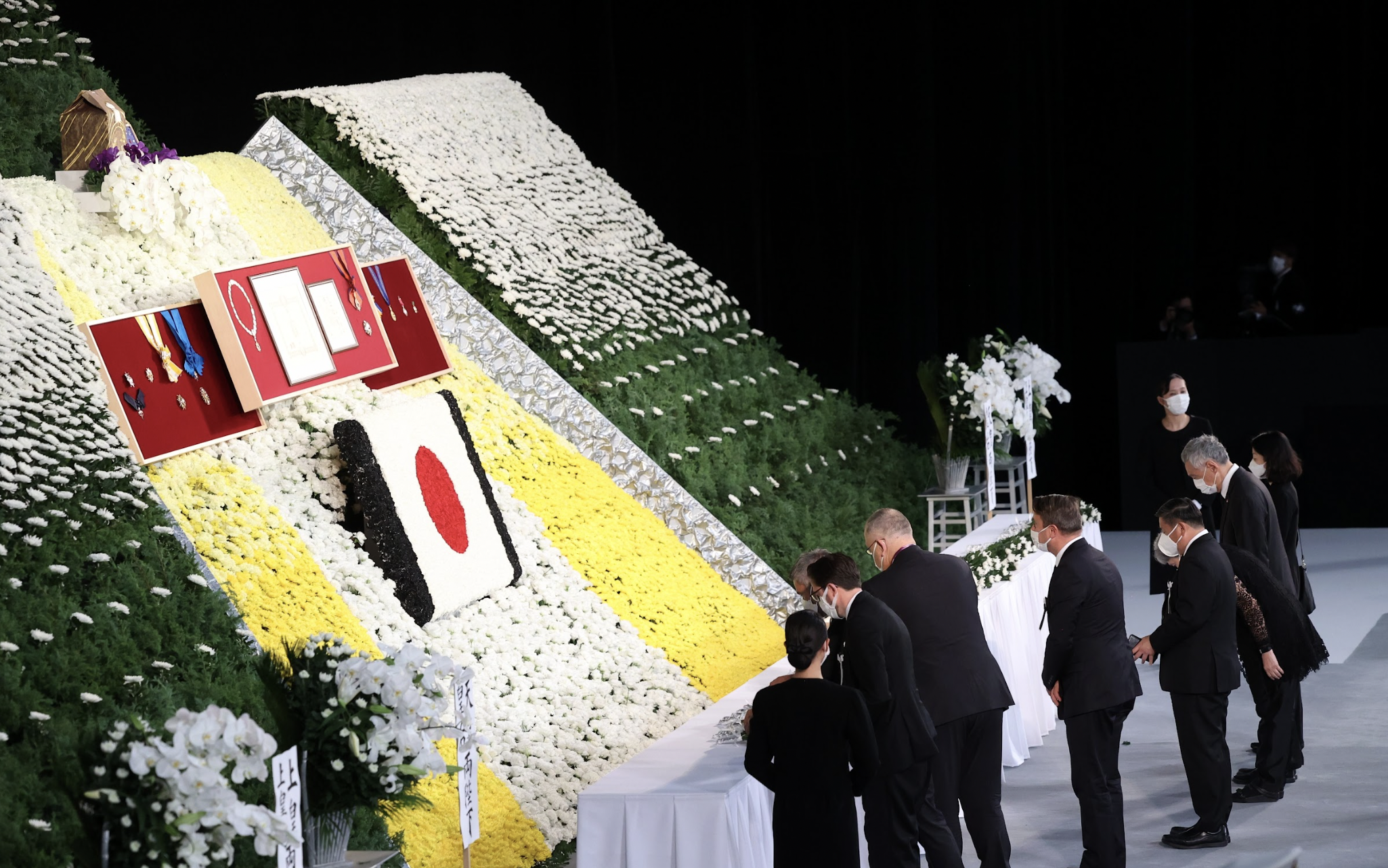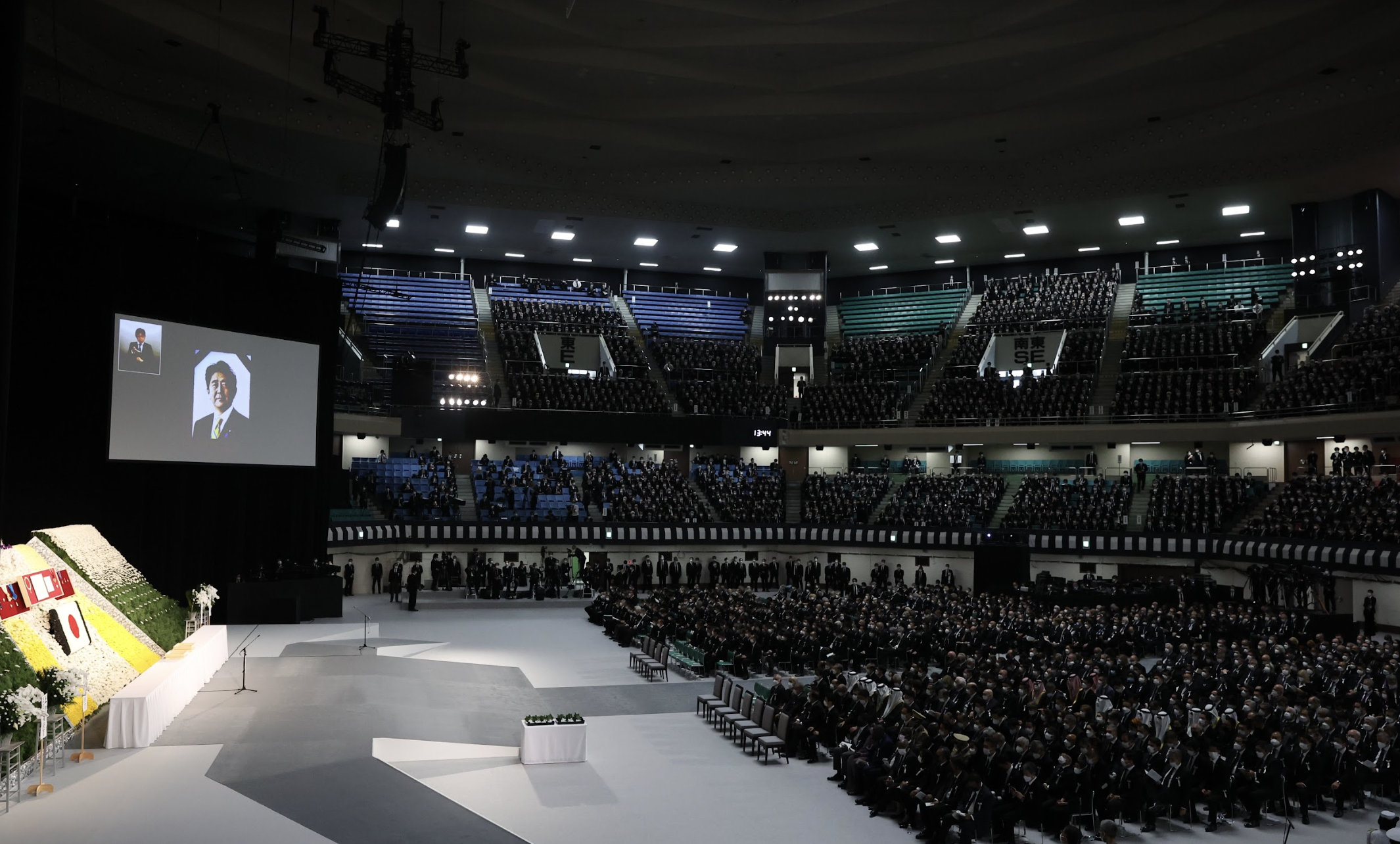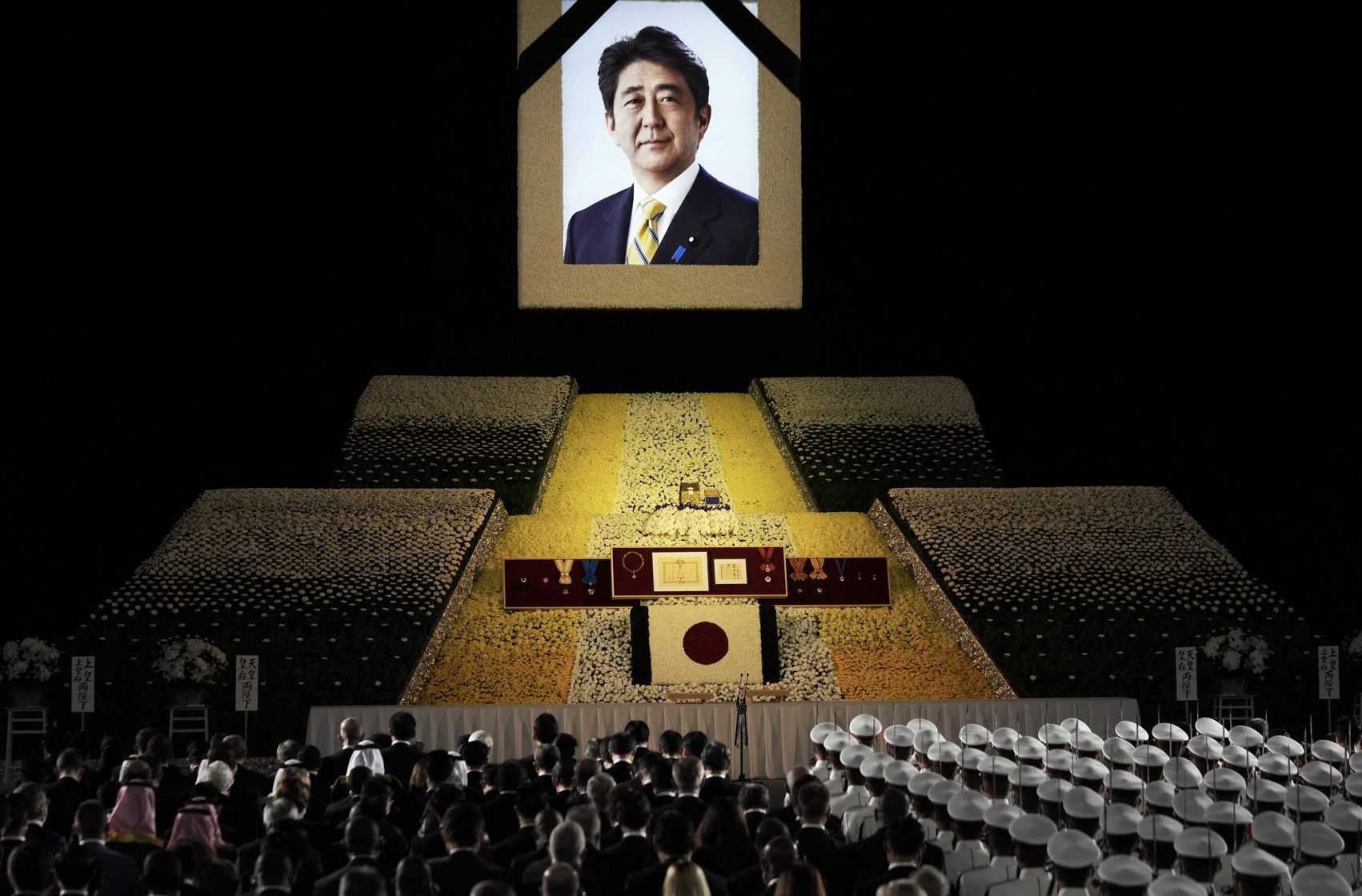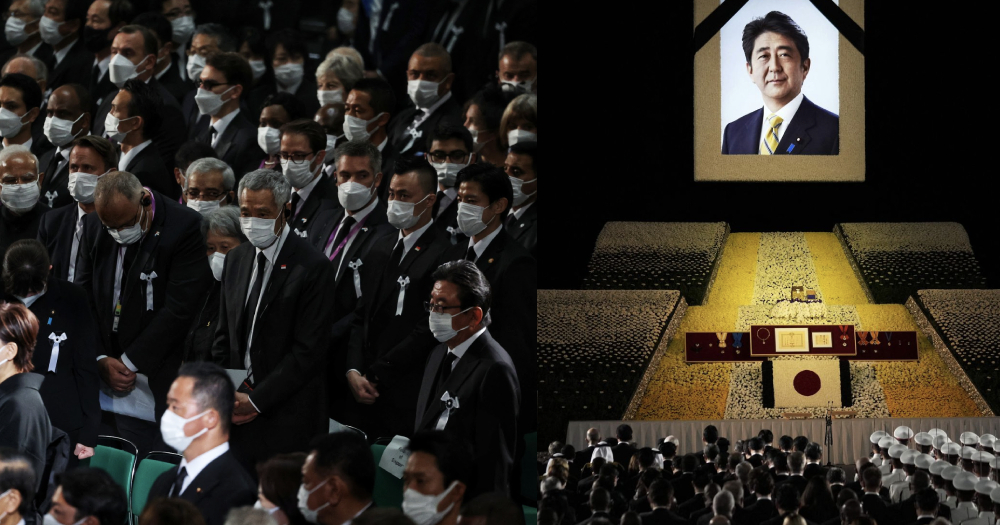Follow us on Telegram for the latest updates: https://t.me/mothershipsg
Prime Minister Lee Hsien Loong attended the state funeral of former Japanese Prime Minister Abe Shinzo with his wife Ho Ching on Tuesday, Sep. 27.
 Image via Ministry of Communications and Information
Image via Ministry of Communications and Information
Private funeral
Abe, Japan's longest serving post war prime minister, was assassinated on July 8 by a man using an improvised firearm. Abe was campaigning in the Japanese city of Nara for the Liberal Democratic Party at the time.
Abe had retired from the premiership in 2020, citing health concerns, having spent nearly nine years in office, which was split between a short first stint in 2006 and a period that lasted over seven and half years from 2012 to 2020.
Abe was cremated after a private funeral on July 12, but the Japanese government have decided to hold a state funeral for him, a decision that has proven to be controversial.
A contested legacy
Nikkei Asia quoted Kishida's reasons for the decision, which included the fact that Abe's assassination came during an election campaign, as well as his long tenure, and his role in developing Japan's current strategic foreign policy.
Kishida also noted the number of foreign dignitaries that were expected to fly to Japan to pay their respects. One of Abe's legacies was the proactive role that he played expanding Japan's foreign policy.
 Image via Ministry of Communications and Information
Image via Ministry of Communications and Information
Most notable was his development of the Quadrilateral Security Dialogue, or the Quad, a security grouping involving United States, Japan, India, and Australia, which are committed to protecting their interests in the Indo-Pacific.
The BBC also credits Abe's central role in bringing to fruition the mega-regional Tans-Pacific Partnership (TPP) trade deal, and salvaging it after the U.S. left it under the administration of Donald Trump.
Abe would take the remnants of the TPP and reconfigure it to become the Comprehensive and Progressive Agreement for Trans-Pacific Partnership (CPTPP), salvaging nearly a decade of trade talks between the remaining states.
But it is this strident commitment to foreign policy that is causing some in Japan to reject the state funeral. This is because in addition to the reasons stated by Kishida, Abe was also known for promoting a more strident and nationalistic approach to Japan's defence.
He expanded the role of Japan's military, passing laws that would allow it to operate outside of Japan in conjunction with its allies.
Public opposition
According to Nikkei Asia, opposition to the state funeral is polling at 60 per cent against the funeral and only 33 per cent for.
 Image via Franck Robichon/Agence France-Presse/Getty Images
Image via Franck Robichon/Agence France-Presse/Getty Images
In addition to a rejection of his nationalistic legacy, there is concern about the closeness between Abe, the LDP ruling party, and the Unification Church, a South Korean messianic religious organisation.
Abe's assassin ostensibly targeted Abe because of how the assassin's mother had been convinced to donate her life savings to the church, and his perception that Abe was close to the Church. Abe had given a speech on the church's behalf in 2021.
Since then, many LDP members have admitted to having ties to the Unification Church, and many members of the public are concerned about the church's influence on Japanese politics.
In addition, several protestors questioned Abe's legacy, saying that his foreign and defence policy took on a nationalistic tone, in opposition to the country's pacifistic constitution.
Nikkei also cited a concern for the cost of the funeral, and how it was approved. The estimated cost of the funeral is 1.66 billion yen, but the initial estimate was a fraction of that number. Some critics said that the decision circumvented the Diet, Japan's bicameral parliament.
A man, believed to be in his 70s, apparently set himself on fire in protest. Protests have also been held to show opposition to the government's plans.
According to Nikkei Asia, former PM's funerals are usually held by their political parties and the cabinet.
But despite the protest, many had lined the streets to pay respects when his private funeral was held.
As reported by The Japan Times, many gathered again to offer floral tribute, and nearly 4,300 people attended the ceremony held at the Nippon Budokan, with Kishida delivering a eulogy.
Former Prime Minister Yoshihide Suga also recounted a three hour dinner where he successfully persuaded Abe to run again, calling it his "greatest achievement".
Foreign leaders
But whatever the domestic situation, it is clear that Abe's funeral was attended by several of Japan's key allies -- many of those ties deepened due to Abe's own foreign policy.
Prime Minister Lee Hsien Loong confirmed his attendance early in September, and attended the ceremony with his wife Ho Ching.
In a condolence letter he sent to Kishida after Abe's death, he spoke about their nearly decade long working relationship, and the effort Abe made in attending the state funerals of both Lee Kuan Yew and SR Nathan.
He also spoke about Abe's engagement with Asean and the Asia-Pacific Economic Cooperation (APEC), and lauded him for his "vision and leadership" when concluding CPTPP talks.
Fellow Quad members also sent high level delegations.
India and Australia's Prime Ministers, Narendra Modi and Anthony Albanese attended, as well as three other former Australian PMs, John Howard, Tony Abbott, and Malcolm Turnbull.
U.S. Vice President Kamala Harris also attended, as well as a number of former U.S. ambassadors and former Head of the Joint Chiefs of Staff Mike Mullen.
South Korean Prime Minister Han Duck-soo, as well as 700 foreign dignitaries were also present.
Related stories
Top image adapted via Ministry of Communications and Information & Franck Robichon/Agence France-Presse/Getty Images
If you like what you read, follow us on Facebook, Instagram, Twitter and Telegram to get the latest updates.
